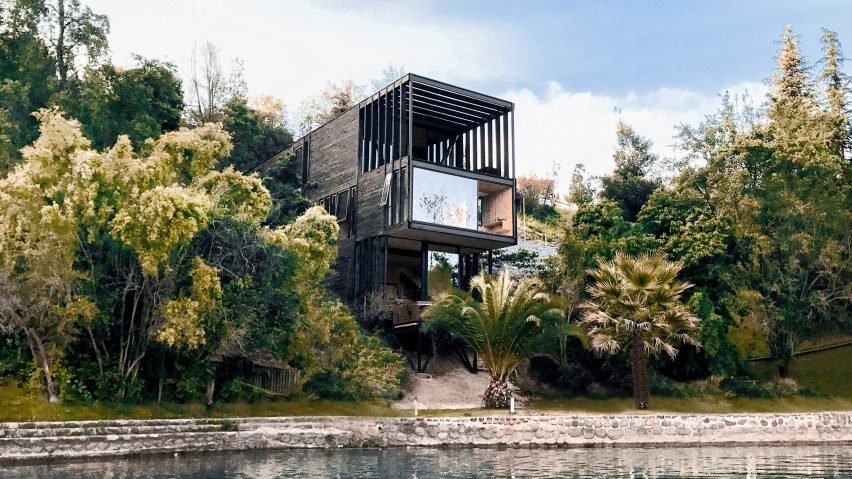
Timber-clad house by Hsü Rudolphy peeps from trees near Chilean lake
The three levels of this house by Santiago firm Hsü Rudolphy step down a sloped site to Rapel Lake, creating multiple terraces and access to the water.
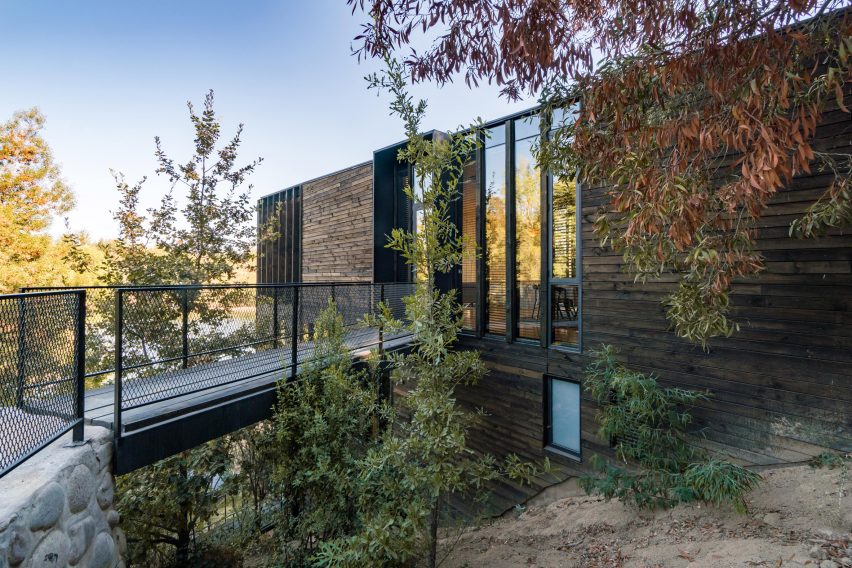
Located roughly two hours South of Santiago, the 244-square-metre Slope House overlooks Chile's Rapel Lake, an artificial reservoir that feeds into a dam further down the Rapel River.
Hsü Rudolphy, a studio led by Ian Hsü and Gabriel Rudolphy, designed the property to step down a slope to the water's edge. The upper volume, however, cantilevers over the lower structure, to form a large window topped by a terrace that both offer views of the surroundings.
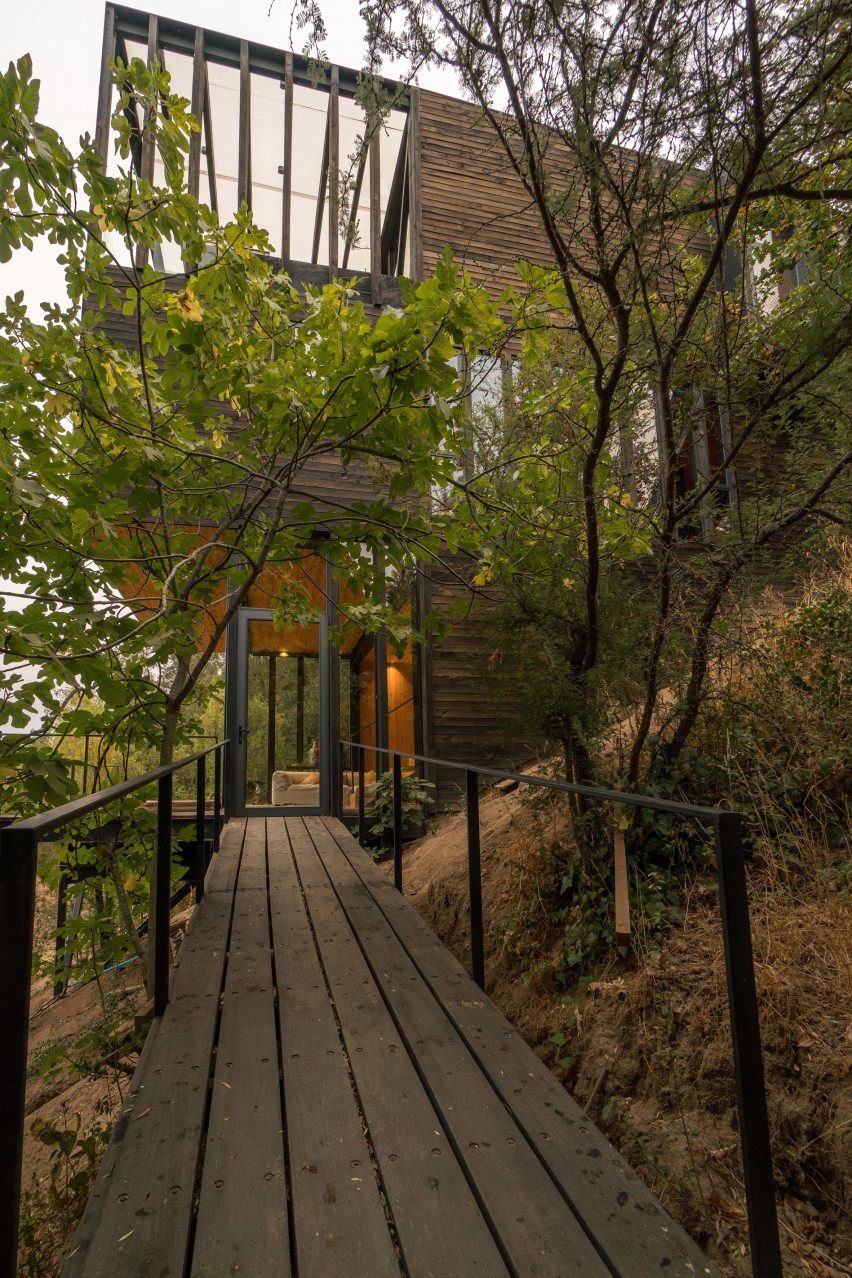
To avoid unnecessary excavation, each level is slightly shorter than the one above it, following the outline of the site's slope. Integrating the home into its natural setting was a key part of the design, and a priority for the clients.
"The client is a family that loves nature and architecture, who pointed out the aspects they considered relevant and that we interpreted in a conceptual architectural proposal," Rudolphy told Dezeen.
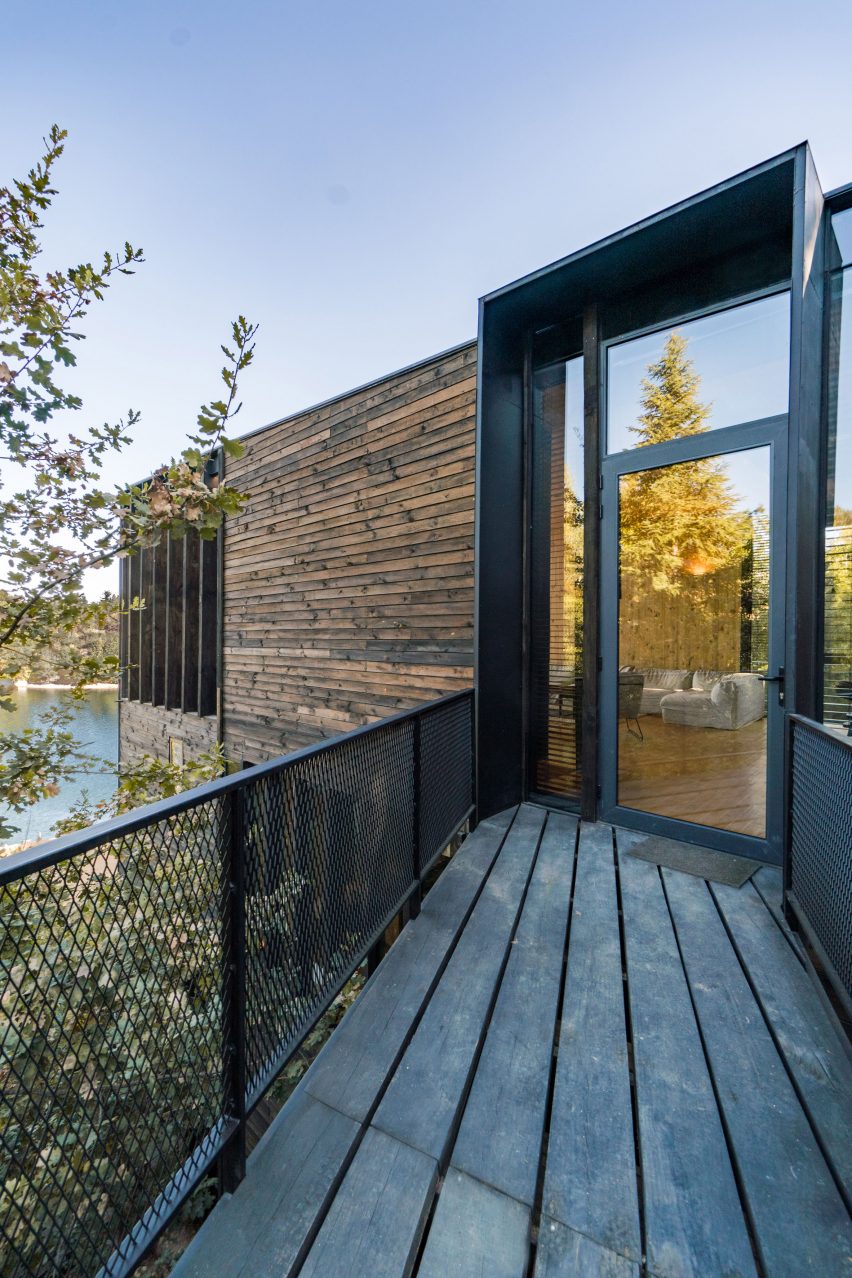
"The confidence they put in us was fundamental to achieve the final objective, combining the needs of the client in a complex terrain, with a simple architectural expression, well defined and respectful of the environment that they liked very much."
Horizontal wooden cladding around the home is covered in a protective treatment that darkens the tone, complementing the blackened steel structure of the windows and other accents. "The wood is radiata pine, the most used and economical type of wood in Chile," Rudolphy said.
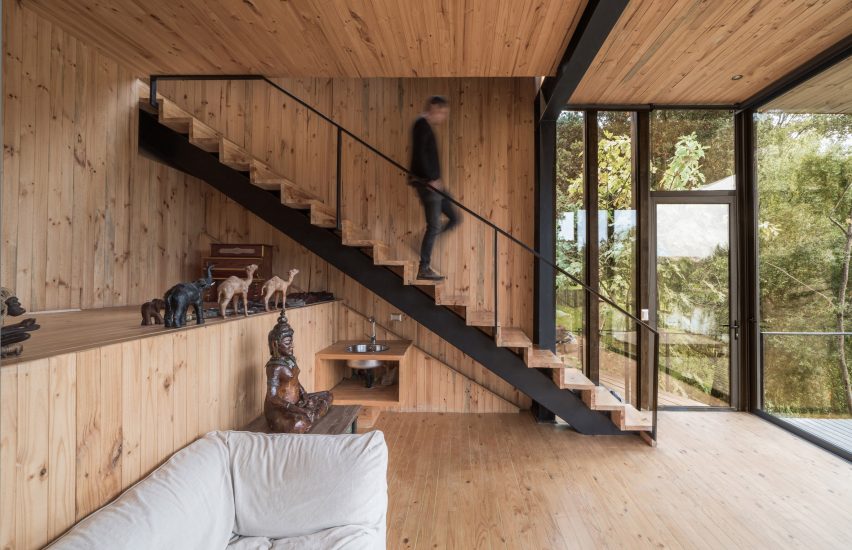
Inside, pale wood lines the walls, ceilings and floors, and is offset by black steel framing.
The studio chose a simple palette to complement the home's steel-and-concrete structure. "We wanted to find simple solutions, simple finishes, but arranged efficiently, to achieve an optimal result for users, with low maintenance and high durability," it said.
Because of the site's slope, the main access to the home is from the top level, via a footbridge. A black metal outline frames the front door, creating a sheltered area that leads inside.
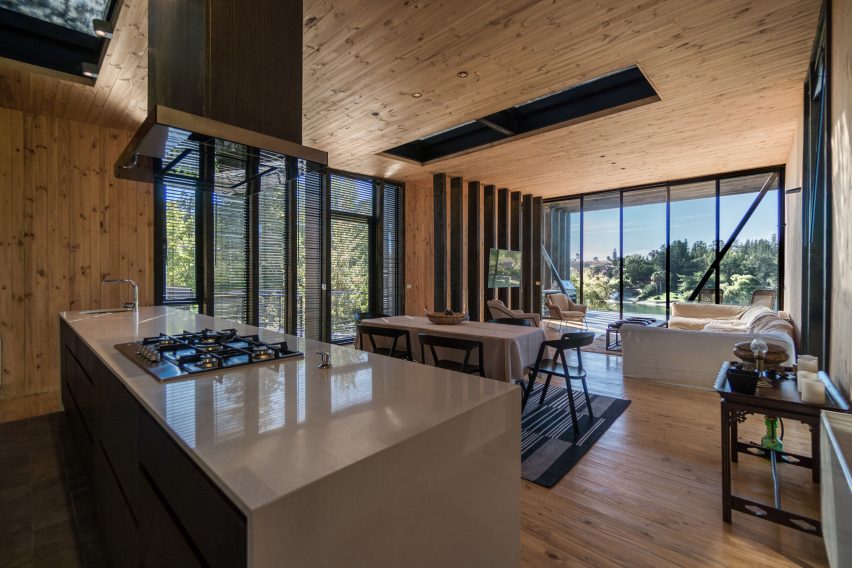
The top level is occupies by open-plan kitchen, living, and dining room, which enjoy the best views of the lake.
The roof here slopes up towards the landscape, providing a range of interior heights in the space. "This level has a roof, an inclined plane that gives hierarchy to the spaces with their height ranging from four to 2.7 metres," said the studio.
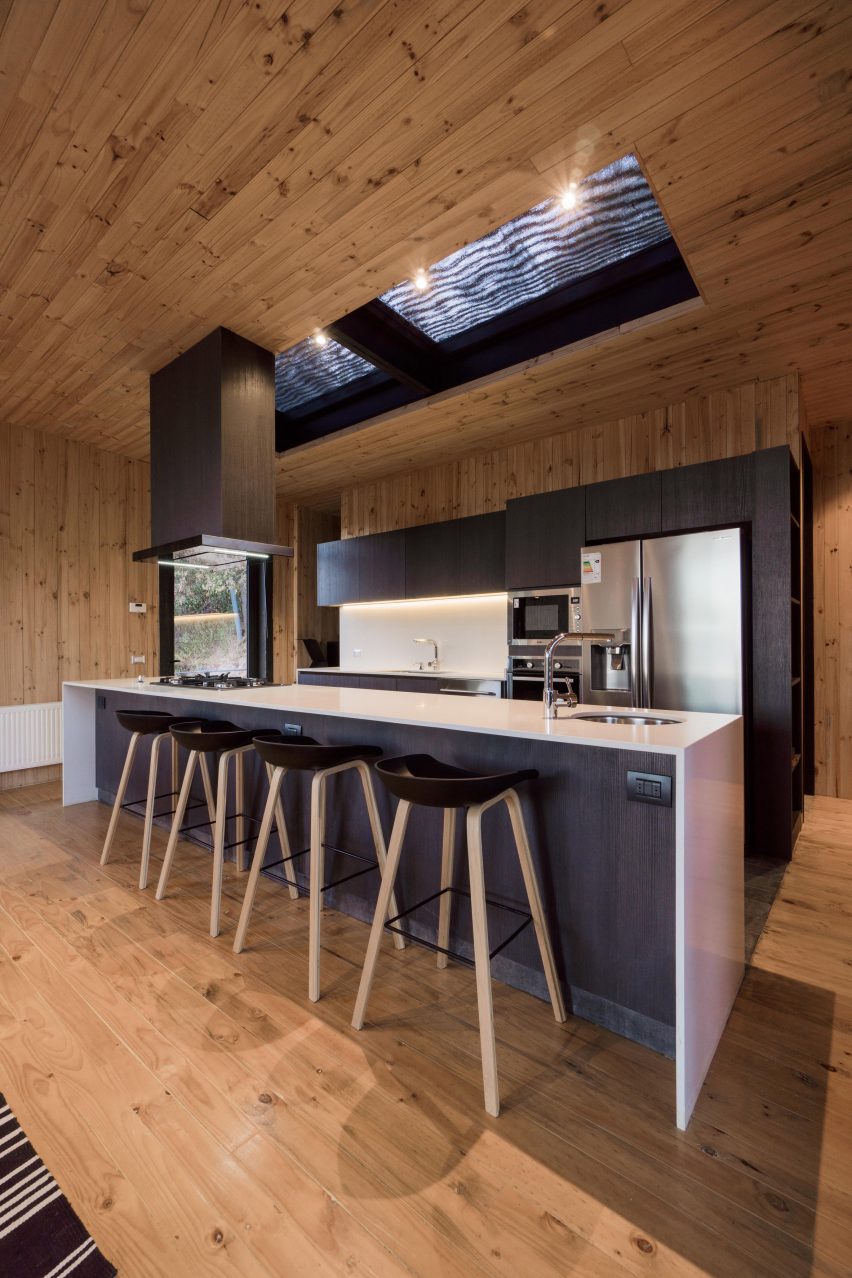
On the lowest end is the kitchen, along with a bathroom and technical areas. At the opposite end, closer to the living room, sliding glass walls open onto a terrace that is shaded by a metallic lattice structure.
The intermediate floor contains the home's three bedrooms; two of these face south, and share a hallway and toilet. The master suite anchors the east end of the property overlooking the lake, so it enjoys an expansive window facing the rising sun.
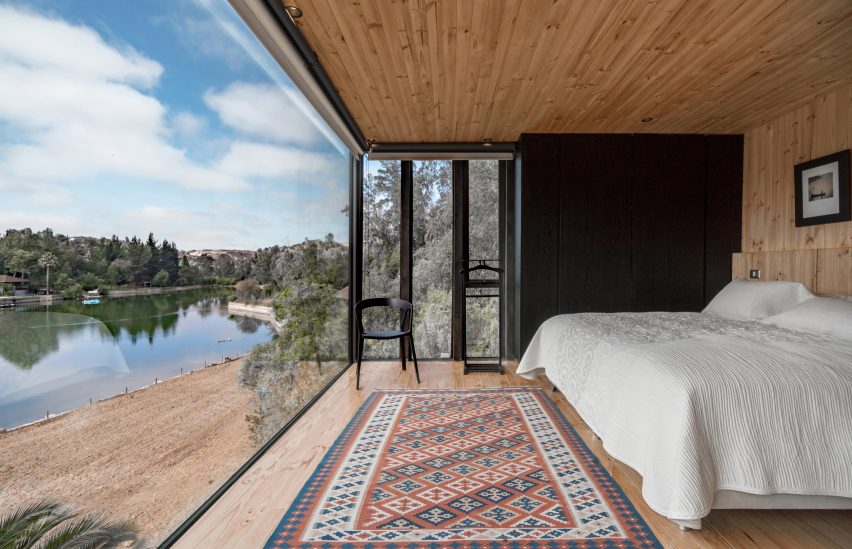
On the lowest floor is another sitting room, which, like the common area two floors up, opens to an exterior terrace. The outdoor space here is partially covered by the home's massing, and has a jacuzzi. "The lower floor has a versatile living space, with a second terrace, which connects with the ground and the lake," said Hsü Rudolphy.
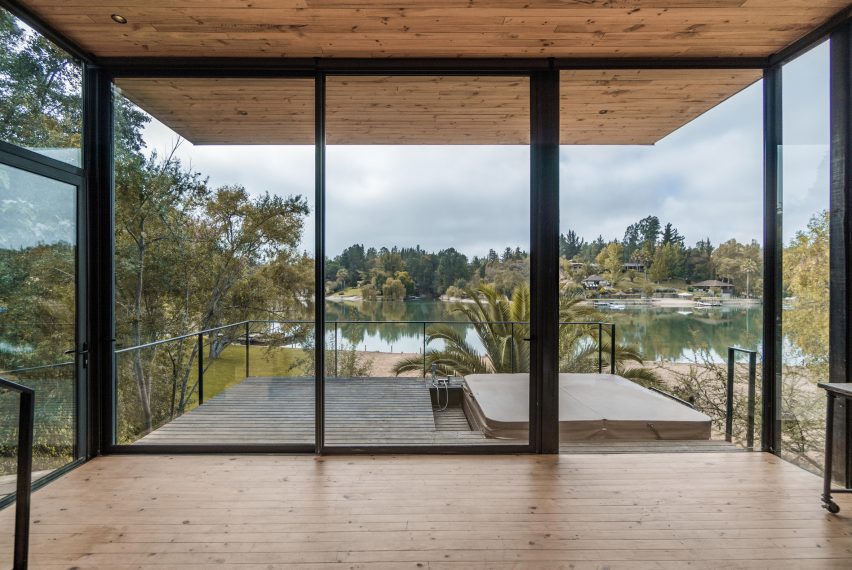
Ian Hsü and Gabriel Rudolphy have built another lake home in Chile, creating unique spaces for children and adults within separate volumes. Other projects in Chile include a sculptural residence on the coast by Alejandro Aravena and a home in Valparaiso by Mas Fernandez Arquitectos with a low, ridged roof.
Photography is by Ian Hsü.
Project credits:
Construction: Constructora Dreco
Structural engineering: José Manuel Morales
Design Team: Ian Hsü, Gabriel Rudolphy